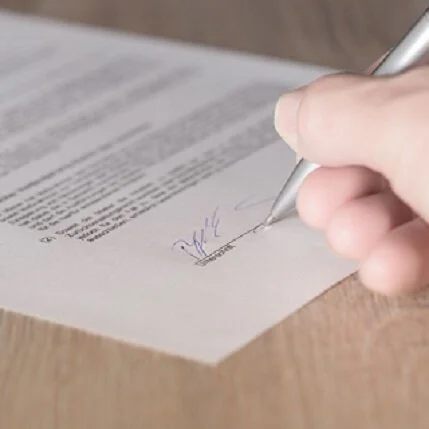In 2021, there were 113,505 divorces granted in England and Wales, a remarkable 9.6% increase compared with 2020 statistics (of 103,592 divorces).
This may be a reflection of the backlog of divorce applications in light of the Covid-19 pandemic causing significant disruption to court activities, however the reality of the situation is that divorce is a feature of life that many encounter and will need to legally deal with. If you have a Will in place, you may have a question of what happens to your Will when you divorce, as you may have drafted it in different circumstances in light of you still having a spouse and making provision for them upon your death.
Does a divorce mean my Will is automatically revoked?
No – a divorce does not revoke a Will that you have made. Your Will remains valid, but for inheritance purposes, your ex-partner is treated as if they have died when your marriage or civil partnership was dissolved, unless they express a contrary intention. However, if you marry, any existing Will is automatically revoked (cancelled) and becomes invalid.
This may sound like a positive thing, that your spouse cannot have a claim to your estate upon your death, however, if you have left your estate to your ex-spouse and your Will does not specify what happens in the event of their death, it can have a serious effect as the rules of intestacy could apply.
The rules of intestacy apply when someone died without a valid Will, or for example, the original beneficiary of the Will dies, and the Will does not include details of what should happen next (i.e. back-up beneficiaries). The rules of intestacy specify exactly who can then inherit from your estate.
Rules of intestacy:
In brief, the rules of intestacy are rigid in their design – they do not cater or recognise modern family relationships, where, for example, there are unmarried or unregistered partners. Further, these rules only recognise natural and adopted children for the purpose of inheritance; they do not acknowledge stepchildren. Under the rules of intestacy, the estate will be divided between their relatives in a certain way: –
- If the person who died was married or in a civil partnership and has no children, all of their estate will go to their spouse or civil partner.
- If the person who died was married or in a civil relationship but does have children, the first £270,000 of their estate will go to their spouse or civil partner, along with any of their personal possessions. Anything over £270,000 will then be divided, with the spouse or civil partner receiving 50% of this, and the children entitled to divide the other 50% between them.
- If the person who died was not married or in a civil partnership, but was living with their long-term partner, they will not be entitled to anything. If they do have children, the entire estate will go to them. If there are no children, then the estate could go to the parents, siblings, or other relatives such as aunts, uncles and grandparents.
An updated Will is the only method in which it can be made explicitly clear who should inherit your property and possessions after your death. This Will needs to be updated as and when major life events, such as a divorce, take place so that its provisions actively reflect your intention.
If you wish to change your Will:
Do not add handwritten changes to your Will (these are unlikely to be legally valid). You cannot amend your Will after it has been signed and witnessed. The only way in which you can change a Will is either by making a new Will or by making an official alteration called a codicil.
Claims against the estate
It is important to note that even if a divorce is finalised, the former spouse or civil partner can still make an application for provision from the testator’s estate by making a claim under the Inheritance (Provision for Family and Dependants) Act 1975.
If your ex-partner is financially dependent after your divorce, and you do not make provision for them in your Will, they could potentially make a claim under the Inheritance Act.
The crucial question is whether or not, looked at objectively, the Will (or the intestacy) failed to make reasonable financial provision for the former spouse or civil partner in all the circumstances of the case according to the standard applicable to that spouse/civil partner.
Please contact Paula Alvarez from our private client team on 01483 302000 or
e-mail for further information on this matter or any other private client concerns.



